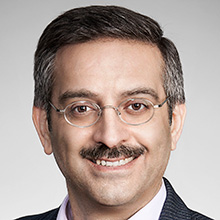Publications
Iran–Israel War’s Implications for Armenia
 By Benyamin POGHOSYAN, PhD, Senior Research Fellow at the APRI Armenia
By Benyamin POGHOSYAN, PhD, Senior Research Fellow at the APRI Armenia
The June 2025 12-day Iran–Israel War and US military strikes targeting Iranian nuclear sites created shock waves in the Middle East and beyond. Iran and Israel exchanged strikes twice in 2024, but these were limited and mostly symbolic operations. While the war did not solve critical issues between Iran and Israel, and there is a possibility of another escalation, it demonstrated the volatile nature of Middle Eastern geopolitics, shaped by evolving balance of power. Armenia is a neighbour of Iran, and this fact alone is enough to mean that Armenia will be affected by any Iran–Israel confrontation. However, there are other factors that can amplify the implications for Armenia of a potential long-term war against Iran.
READ MORE
Publications
Kazakhstan Aims to Modernize Military Through Multi-Vector Diplomacy
 By Fuad Shahbazov, Baku-based independent regional security and defence analyst
By Fuad Shahbazov, Baku-based independent regional security and defence analyst
Kazakhstan has recently been making steps to improve its defence capabilities. In April 2025, the Kazakh Ministry of Defence confirmed that a legislative framework was established to regulate the Defence Industry Development Fund, which was created in December 2023. The new defence fund aims to acquire and manufacture domestically crucial military hardware, such as artillery ammunition, weapons systems, and combat modules. For this purpose, the Kazakh government plans to allocate approximately $265 million from the state budget. Earlier, on March 3, Kazakh Defence Minister Ruslan Zhaksylykov announced the establishment of a new defence industry centre at the only tank repair plant in Central Asia in the Eastern city of Semey. Zhaksylykov proclaimed that the new hub aims to strengthen “Kazakhstan’s self-sufficiency in defence production” through “expanding the ability to both maintain and manufacture crucial military technologies locally”. As the regional order in Eurasia shifts amid Russia’s war against Ukraine, Kazakhstan is opting to rely on its armed forces, domestic military resources, and international security partnership formats to counter any potential threat. READ MORE
Publications
West Can’t Help Ukraine Win the War — but it Could Help End it  By Elkhan NURIYEV, PhD, Senior Fellow at the Alexander von Humboldt Foundation in Berlin
By Elkhan NURIYEV, PhD, Senior Fellow at the Alexander von Humboldt Foundation in Berlin
As the war in Ukraine drags on for yet another year, a hard truth is becoming even harder to ignore: Military victory may no longer be a realistic objective for Kyiv — no matter how many billions the West sends, or how many Russian soldiers die. This isn’t a popular outlook in Washington or Brussels, where the assumption persists that enough aid and resolve will eventually break Moscow. But despite Ukraine’s extraordinary resilience and the West’s deep pockets, that outcome is looking increasingly unlikely. Rather, the war is hardening into a grinding stalemate — one that threatens to exhaust Ukraine, fracture Western unity and empower the very regime it was meant to weaken. The question Western policymakers must now confront is not whether Ukraine deserves support, but whether the current strategy is helping it win, or simply helping it survive long enough to lose more slowly. READ MORE
Publications
Strategic pathways toward a credible endgame for Ukraine  By Elkhan NURIYEV, PhD, Senior Fellow at the Mathias Corvinus Collegium Foundation in Budapest and Senior Fellow at the Alexander von Humboldt Foundation in Berlin
By Elkhan NURIYEV, PhD, Senior Fellow at the Mathias Corvinus Collegium Foundation in Budapest and Senior Fellow at the Alexander von Humboldt Foundation in Berlin
Just over two months into U.S. President Donald Trump’s second term, new uncertainties have begun to reshape the West’s approach toward the war in Ukraine. As the conflict grinds through its third year, signs of strategic drift have emerged across Western capitals. With battlefield momentum stalled, political divisions deepening, and public fatigue rising, the West now faces a narrowing window to reassess its goals—or risk drifting toward a scenario of prolonged stalemate and fractured unity. While former president Joe Biden framed the war as a broader fight for democracy and pledged open–ended support to Kyiv, Trump’s foreign policy instincts emphasize burden sharing, cost efficiency, and transactional diplomacy. These principles are already shaping Washington’s posture. Military aid packages have slowed, public rhetoric has shifted toward ending the war “quickly,” and U.S. diplomatic overtures increasingly hint at conditional support rather than blank checks. READ MORE
Publications
Uzbekistan: Development of Culture – A Key Tool for Preserving National Identity  Ozodbek Nazarbekov, Minister of Culture of the Republic of Uzbekistan
Ozodbek Nazarbekov, Minister of Culture of the Republic of Uzbekistan
Culture and art are the foundation of civilization, national identity, and spiritual perfection, as well as important indicators of a country’s progress. The development of these spheres, reflecting the spiritual growth of the people, their past, present, and future, requires an approach that meets the demands of the times. This is why the reforms aimed at the development of culture and art in Uzbekistan carry profound meaning and are entering a new phase.
READ MORE